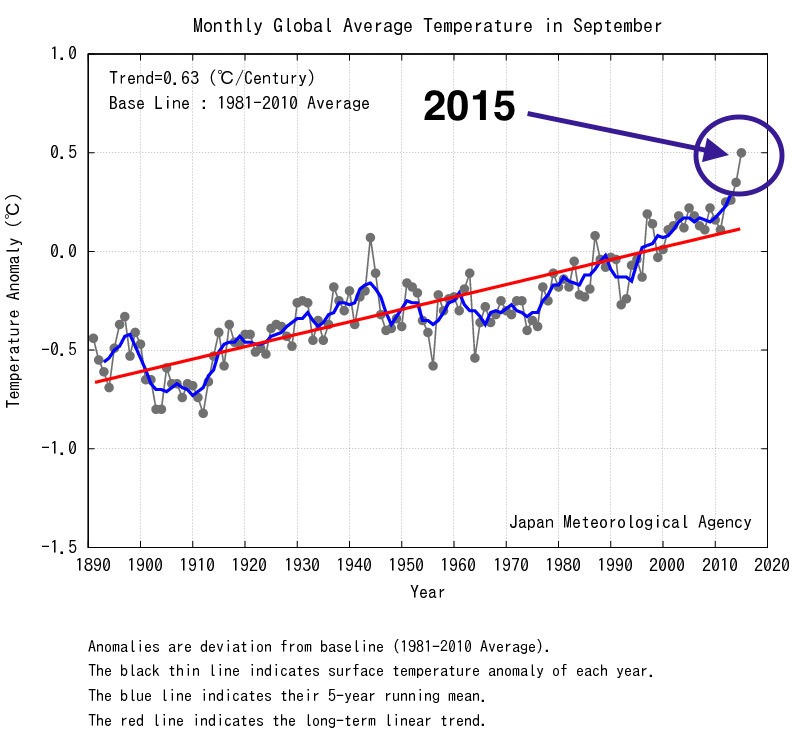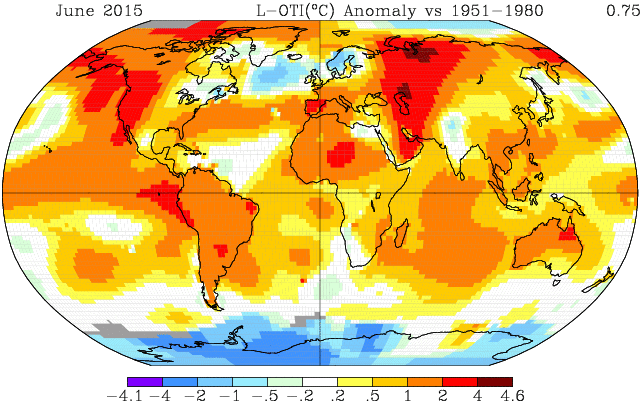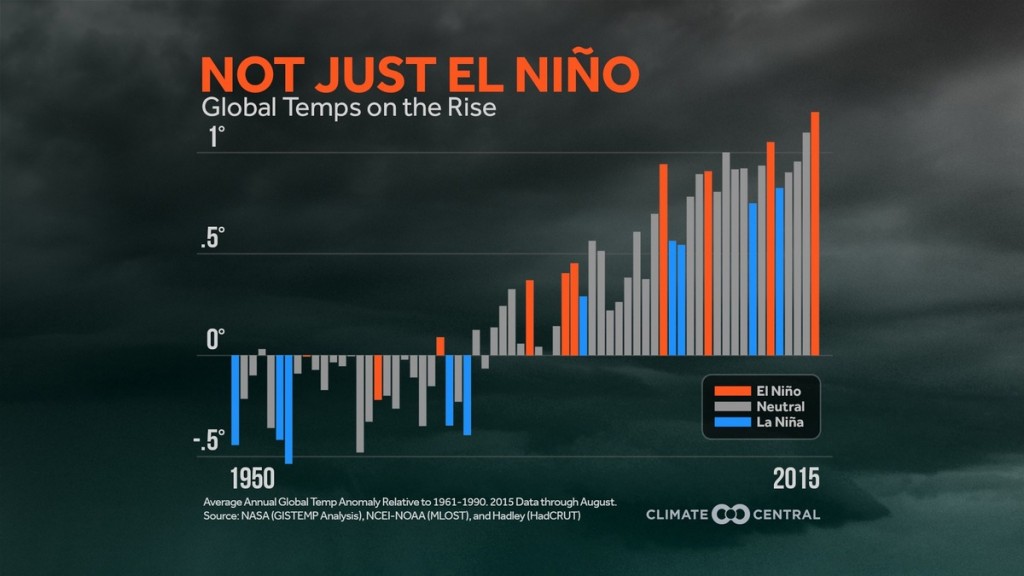Earth just had its warmest September on record — by a long shot

It's virtually certain that in January 2016, the planet will set a new record for the warmest calendar year on record. A key data set that tracks global average surface temperatures, which comes from the Japan Meteorological Agency, shows a huge jump in temperatures in September as compared to average.
Related data compiled by NASA and analyzed using different methods shows that September was most likely the second warmest such month on record, and that there is at least a 93% likelihood of setting the record for the warmest year this year.
The data from the Japan Meteorological Agency is striking, since it shows that September 2015 blew the previous record for the warmest such month out of the water by 0.15 degrees Celsius (0.27 degrees Fahrenheit). September had a temperature anomaly of 0.50 degrees Celsius (0.9 degrees Fahrenheit), compared to the 1981-2010 average.

The previous record-holder for the warmest September since such data began in 1891 was last year, September 2014.
This may seem like quibbling over very small differences, but consider that the discrepancy between the planet we know today and a planet with virtually zero ice cover in Greenland and Antarctica is about 10 degrees Fahrenheit, for a global average.
In short, big changes can occur as a result of relatively small differences in global average temperatures. In short, big changes can occur as a result of relatively small differences in global average temperatures.
Typically, global average temperature records — whether they're months or years — are exceeded by far smaller margins. For example, the difference between the third warmest September and the fourth warmest September in the data set was just 0.1 degree Celsius (0.18 degrees Fahrenheit).
September update. Chance of a GISTEMP record warm year in 2015 increased to 93% pic.twitter.com/yrEiKbEXYK
— Gavin Schmidt (@ClimateOfGavin) October 11, 2015
The National Oceanic and Atmospheric Administration (NOAA) has found a 97% chance that 2015 will break the all-time calendar year temperature record for the planet. This is because of natural climate variability, including the most powerful El Niño event in at least 20 years, as well as long-term global warming due to manmade emissions of greenhouse gases.
While El Niño causes temporary spikes in global average temperatures, it is piling atop the manmade trend, pushing temperatures ever higher, with increasingly harmful impacts worldwide. Because of manmade global warming, it no longer takes a strong El Niño to set an annual temperature record, as occurred in 2014, when no El Niño was officially declared.
El Niño elevates global ocean temperatures, particularly in the tropical Pacific. However, in August, global average ocean temperatures were the warmest they had ever been for any month since record-keeping began in 1880.
While El Niño can account for an unusually mild Pacific Ocean, for example, it cannot account for the fact that parts of every major ocean basin were record warm in August, and for much of 2015. These record warm ocean waters are giving rise to the third global coral bleaching event ever, which is forecast to affect more than 38% of the world's coral reefs by the end of 2015 and kill more than 4,630 square miles (more than 12,000 square kilometers) of reefs, according to NOAA.
Next week, NOAA will report its finding on global average temperatures in September, and it is expected that the month will rank in the top three of all time, if not the warmest such month.
Политика конфиденциальности | Правила пользования сайтом









